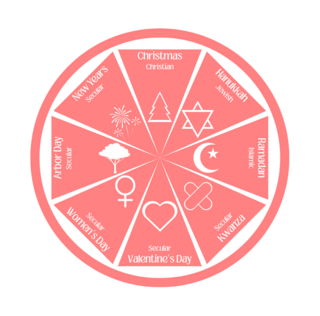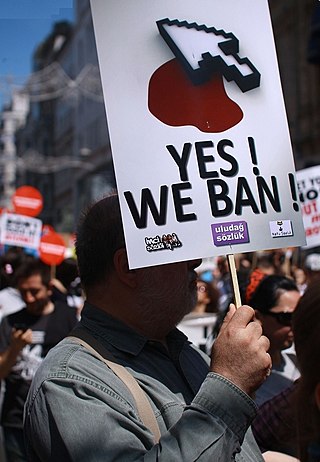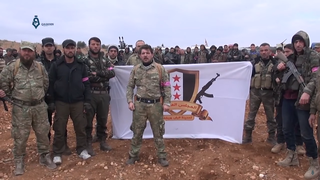
A holiday is a day or other period of time set aside for festivals or recreation. Public holidays are set by public authorities and vary by state or region. Religious holidays are set by religious organisations for their members and are often also observed as public holidays in religious majority countries. Some religious holidays, such as Christmas, have become secularised by part or all of those who observe them. In addition to secularisation, many holidays have become commercialised due to the growth of industry.

Eid al-Fitr is the earlier of the two official holidays celebrated within Islam. Eid al-Fitr is celebrated by Muslims worldwide because it marks the end of the month-long dawn-to-sunset fasting of Ramadan. Eid al-Fitr falls on the first day of Shawwal in the Islamic calendar; this does not always fall on the same Gregorian day, as the start of any lunar Hijri month varies based on when the new moon is sighted by local religious authorities. The holiday is known under various other names in different languages and countries around the world. The day is also called "Lesser Eid", or simply Eid.

Nowruz is the Iranian or Persian New Year celebrated by various ethnic groups worldwide. It is a festival based on the spring equinox—which marks the first day of the new year in the Iranian Solar Hijri calendar, on or around 21 March on the Gregorian calendar.

The Kingdom of Saudi Arabia is an Islamic absolute monarchy in which Sunni Islam is the official state religion based on firm Sharia law. Non-Muslims must practice their religion in private and are vulnerable to discrimination and arrest. While no law requires all citizens to be Muslim, non-Muslim foreigners attempting to acquire Saudi Arabian nationality must convert to Islam. Children born to Muslim fathers are by law deemed Muslim.

Recep Tayyip Erdoğan is a Turkish politician who is the 12th and current president of Turkey. He previously served as prime minister from 2003 to 2014 as part of the Justice and Development Party (AKP), which he co-founded in 2001. He also served as mayor of Istanbul from 1994 to 1998.

In the United States, public holidays are set by federal, state, and local governments and are often observed by closing government offices or giving government employees paid time off. The federal government does not require any private business to close or offer paid time off, as is the case for most state local governments, so employers determine which holidays to observe.

The Justice and Development Party, abbreviated officially as AK Party in English, is a political party in Turkey self-describing as conservative-democratic. It has been the ruling party of Turkey since 2003. Third-party sources often refer to the party as national conservative, social conservative, right-wing populist and as espousing neo-Ottomanism. The party is generally regarded as being right-wing on the political spectrum, although some sources have described it as far-right since 2011. It is one of the two major parties of contemporary Turkey along with the Republican People's Party (CHP).
Bangladesh has numerous public holidays, including national memorial, religious and secular holidays of Bengali origin. The Bengali traditional calendar, known as Baṅgābda is the national and official calendar in Bangladesh. The holidays are celebrated according to Bengali, Islamic or Gregorian calendars for religious and civil purposes, respectively. Religious festivals like Eid are celebrated according to the Islamic calendar whereas other national holidays are celebrated according to the Bengali and Gregorian calendar. While the Islamic calendar is based on the movement of the moon, it loses synchronization with the seasons, through seasonal drift. Therefore, some public holidays are subject to change every year based on the lunar calendar.

A list of current public holidays in South Africa:

Islam is the most practiced religion in Turkey. As much as 90% of the population follows the Sunni Madhab of Islam. Most Turkish Sunni Muslims belong to the Hanafi school of jurisprudence. The established presence of Islam in the region that now constitutes modern Turkey dates back to the later half of the 11th century, when the Seljuks started expanding into eastern Anatolia.
Human rights in Muslim-majority countries have been a subject of controversy for many decades. International non-governmental organizations (INGOs) such as Amnesty International (AI) and Human Rights Watch (HRW) consistently find human rights violations in Muslim-majority countries. Amongst the human rights issues that are frequently under the spotlight are LGBT rights, the right to consensual sex outside of marriage, freedom of speech and political opinion. The issue of women's rights is also the subject of fierce debate.

Bayram is the Turkic word for a nationally-celebrated festival or holiday, applicable to both national and religious celebrations.

In Turkey, secularism or laicism was first introduced with the 1928 amendment of the Constitution of 1924, which removed the provision declaring that the "Religion of the State is Islam", and with the later reforms of Turkey's first president Mustafa Kemal Atatürk, which set the administrative and political requirements to create a modern, democratic, secular state, aligned with Kemalism.

Religion in Turkey consists of various religious beliefs. While it is known that Islam is the most common religion in the country, published data on the proportion of people belonging to this religion are contradictory. The state registering everyone as Muslim by birth misleads the percentage of Muslims in Turkey. There are many people who follow other religions or do not adhere to any religion but are officially classified as 'Muslim' in official records unless they make a contrary claim. According to the state, 99.8% of the population is initially registered as Muslim. As much as 90% of the population follows Sunni Islam. Most Turkish Sunni Muslims belong to the Hanafi school of jurisprudence. The remaining 0.2% are Christians and adherents of other officially recognised religions like Judaism. The official number of Muslims include people who are irreligious; converted people and anyone who is of a different religion from their Muslim parents, but has not applied for a change of their individual records. These records can be changed or even blanked out on the request of the citizen using a valid electronic signature to sign the electronic application.

Censorship in Turkey is regulated by domestic and international legislation, the latter taking precedence over domestic law, according to Article 90 of the Constitution of Turkey.

Turkey, officially the Republic of Türkiye, is a country mainly in Anatolia in West Asia, with a smaller part called East Thrace in Southeast Europe. It borders the Black Sea to the north; Georgia, Armenia, Azerbaijan, and Iran to the east; Iraq, Syria, and the Mediterranean Sea to the south; and the Aegean Sea, Greece, and Bulgaria to the west. Turkey is home to over 85 million people; most are ethnic Turks, while ethnic Kurds are the largest ethnic minority. Officially a secular state, Turkey has a Muslim-majority population. Ankara is Turkey's capital and second-largest city; Istanbul is its largest city, and its economic and financial center, as well as the largest city in Europe. Other major cities include İzmir, Bursa, Antalya, Konya and Adana.
The Gülen or Hizmet movement and alternatively Fethullahist Terror Organization (FETÖ) is an Islamist fraternal movement a sub-sect of Sunni Islam based on a Nursian theological perspective as reflected in Gülen's religious discourse (oration), referred to by its members as the "service" or "community", in which originated from Turkey around late 1950s and institutionalized in 180 countries in that addition to educational institutions owns media, finance, for-profit health clinics, and affiliated foundations that reached a net worth in the range of $20-to-$50 billion in 2015. Both the movement and its organizations led by the Islamic preacher Hoca Fethullah Gülen, who left Turkey under the cloud of the lawsuits and settled in Saylorsburg, Pennsylvania in 1999. The members of the organization who were directly involved at 2016 Turkish coup d'état attempt were put in prison and the members who worked for Turkey’s governmental agencies were dismissed. The movement is designated as a terrorist organization by Turkey, Pakistan, Northern Cyprus, and the Gulf Cooperation Council.

The headscarf controversy in Turkey was a 20th and early 21st century controversy about women wearing Islamic headscarves. The Republic of Turkey had been a secular state since the constitutional amendment of 1937. Mustafa Kemal Atatürk introduced the secularization of the state in the Turkish Constitution of 1924, alongside his reforms. Over 90% of Turkey's population is Muslim, and the suppression of hijab/headscarves and other prominent religious symbols in government institutions and public schools, led to heated controversy at times in Turkey. Specifically, it resulted in a clash between those favoring the secular principles of the state, such as the Turkish Armed Forces, and religious conservatives, including Islamists. In the early 21st century, the Justice and Development Party (AKP) and its leader Recep Tayyip Erdoğan reversed this, and worked to "raise a pious generation" in Turkey.

Turkey's involvement in the Syrian Civil War began diplomatically and later escalated militarily. Initially, Turkey condemned the Syrian government at the outbreak of civil unrest in Syria during the spring of 2011; the Turkish government's involvement gradually evolved into military assistance for the Free Syrian Army in July 2011, border clashes in 2012, and direct military interventions in 2016–17, in 2018, in 2019, 2020, and in 2022. The military operations have resulted in the Turkish occupation of northern Syria since August 2016.
Since 2016, the government of Turkey has conducted a series of purges, enabled by a state of emergency in reaction to the failed coup attempt in 15 July that year. The purges began with the arrest of Turkish Armed Forces personnel reportedly linked to the coup attempt but arrests were expanded to include other elements of the Turkish military, as well as civil servants and private citizens. These later actions reflected a power struggle between secularist and Islamist political elites in Turkey, affected people who were not active in nor aware of the coup, but who the government claimed were connected with the Gülen movement, an opposition group which the government blamed for the coup. Possession of books authored by Gülen was considered valid evidence of such a connection and cause for arrest.
















